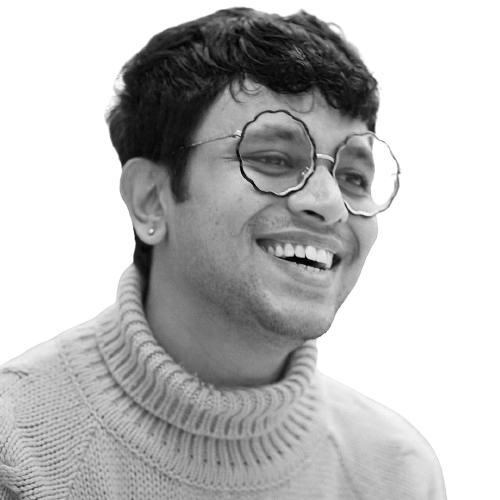- Web Desk
- Apr 05, 2024
Jamaat-e-Islami’s leadership transition
The recent elevation of Hafiz Naeem ur Rehman, leader of Jamaat-e-Islami Karachi, to the position of the party’s central chief, has sparked discussions about the future direction of JI. Analysts view this development as a strategic response to Pakistan’s evolving political scenario.
Conversations with JI members, from Karachi to Lower Dir, reveal an ongoing internal debate concerning the nuances of leadership. Younger members advocate for assertive figures like Rehman, known for his confrontational stance on issues such as Karachi’s civic problems, or Senator Mushtaq Ahmed Khan, who is renowned for his vocal stance on pressing matters such as enforced disappearances. They argue that JI needs a more robust public persona to navigate the current political landscape, which is currently dominated by the populist wave of Imran Khan’s Pakistan Tehreek-e-Insaf.
However, seasoned JI members prioritize ideological purity, emphasizing that the party’s principles should not be compromised for transient popularity or personality-driven politics.
It’s important to note that JI’s recent leadership change holds particular significance. Unlike many other parties in Pakistan, JI’s Amir (chief) is not chosen solely by the central leadership. Jamaat’s constitution empowers the Arakeen, some 46,000 party members with voting rights, to elect their leader. The Shura council proposes three candidates, but the Arakeen can elect anyone.
In the recent leadership election, this power was exercised dramatically. Rehman’s victory over Sirajul Haq, the incumbent JI chief for the past decade, and Liaquat Baloch, another central leader who previously served as secretary-general, with over 80 percent of the vote, suggests a significant shift. This outcome indicates a willingness within JI to adapt to changing political realities, possibly prioritizing electoral success even if it means some pragmatic adjustments to their core message.
Discussions with JI workers suggest two key factors played a significant role in Rehman’s victory over Haq and Baloch. Firstly, a considerable number of Arakeen hail from Karachi. Secondly, Rehman enjoys greater popularity among young Arakeen compared to Haq and Baloch.
This election also witnessed several unprecedented occurrences within JI. For the first time in the party’s history, a city-level chief has ascended to the position of central chief without being part of the central organization. Previously, those elected were either the Secretary-General or the deputy chief, as was the case with Haq and Baloch. Rehman’s victory, devoid of a central role before, suggests a potential shift towards pragmatism.
While the central advisory body or Shura plays a significant role in formulating JI’s policies, the personality of the party leader often dominates the political landscape.
In the past, it was evident that JI is an ideological party, but many JI workers and analysts agree that after Qazi Hussain Ahmad, who remained chief for 22 years, even surpassing JI’s founder Syed Abul Ala Maududi, it became apparent that the importance of personalities within it has also increased.
Ahmad transformed the party from its previously closed nature, a departure from his own tough personality. Insiders mention that during his two-decade tenure as Jamaat chief, the late Ahmed relaxed and simplified the process of obtaining the status of ‘Rukn’.
His successor, Munawar Hassan, who also hailed from Karachi, held stringent views on several issues, including the Taliban insurgency, which was not favored by the military establishment.
Like other Islamist parties, JI members have been questioning the party’s future relevance due to consistently poor electoral performances. Despite participating in national politics since the country’s inception, JI has consistently underperformed in elections, except for its participation in the Muttahida Majlis-i-Amal (MMA) alliance that governed KP from 2002 to 2007.
Disillusionment within the party runs deep. JI’s electoral performance in the February 8 general polls, with over 200 candidates failing to win a single seat, has fueled calls for a change in strategy.
A JI worker from Karachi offered a blunt assessment: “Our strategy is flawed. The party’s narrative is ineffective, and frankly, the PTI has successfully chipped away at our traditional support base.” The workers believe the leadership might be confused, or perhaps the workers themselves lack direction. The party, they say, desperately needs a “crowd-puller,” an energetic leader who can connect with the masses.
Analysts see the reasons for JI’s struggles as rooted in both the past and the present. In the 1990s, The JI under Ahmed’s leadership attempted to position itself as a third force against the established parties, the Pakistan Muslim League-Nawaz and the Pakistan People Party. They launched anti-corruption protests and formed a youth wing, Pasban, which initially attracted young people. However, Pasban eventually splintered.
JI’s anti-corruption message was later adopted by Imran Khan and his PTI party. The key difference, according to analysts, “lies in leadership. Khan’s celebrity status from cricket helped him connect with voters, something JI couldn’t replicate.” Another experiment was the formation of the Pakistan Islamic Front, with anti-corruption slogans, but it couldn’t materialize during the 1993 elections.
The recent appointment of Rehman as JI’s new leader presents a turning point. Will JI prioritize electoral success, potentially compromising its core Islamic principles? Will it adopt a more confrontational approach, mirroring PTI’s style? Can JI reconcile its religious ideals with the demands of a democratic system?
Only time will tell how the new leadership navigates these challenges. However, Rehman’s rise marks a critical juncture for JI. Its ability to adapt and its impact on Pakistan’s political landscape deserves close scrutiny in the coming years.




